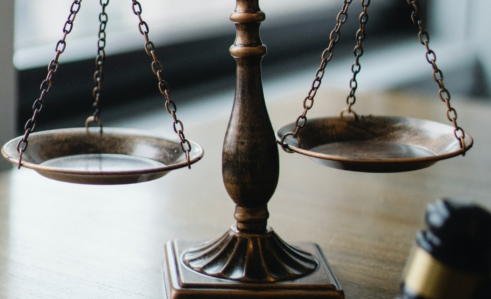

Lara Hafner of ECCO Switzerland|Bernet Relations spoke with lawyer Philipp Kämpfer
Mr Kämpfer, artificial intelligence technologies can now paint pictures, write texts, compose music and much more. What challenges and questions arise here in the area of copyright law?
Up to now, copyright law has basically only regulated the protection of works created by humans. Thus, AI poses various problems for classic copyright law. What exactly “works” of AI are in the sense of copyright law is unclear. But AI itself can also infringe existing copyrights under certain circumstances. For example, when AI art uses, modifies or imitates another person’s artwork. If such works are subsequently redistributed on the internet, the problem intensifies. This is because international situations are practically always present on the internet and it is not always clear which law is applicable at all.
What do I have to bear in mind when citing sources and using AI products?
Since many legal issues in the field of AI are still new, they are still poorly clarified and in a state of flux. In practice, therefore, one tends to be cautious. One is definitely on the safer side with the most comprehensive possible reference to the AI used as a source. The reference should contain the AI itself, the website and, if necessary, the author of the AI. Otherwise, in the worst case, you risk “taking over” a possible copyright infringement of the AI, so to speak.
Who “owns” the products of an AI?
The copyright law currently in force in Switzerland protects only works created by humans. AI products lack precisely this requirement, as they are created by a machine. They are therefore not currently protected by copyright in Switzerland, as there is no author in the legal sense. Internationally, this question is controversial. In England, for example, the view is that copyright belongs to the original programmer of the AI. In China, the view is that it belongs to the user who generated the inputs. Still other legal scholars believe that copyright belongs to the people who generated the learning databases from which the AI draws its “knowledge”. Which view will prevail internationally in the medium or long term remains to be seen.
Is it permissible to use AI products commercially and to make a profit? Who is entitled to these profits?
As mentioned above, there is no protection under Swiss copyright law, so commercial use of AI works would in principle also be permitted without restriction and the profit would be due to the person who generates it. However, it also depends on how the relationship between the user and the AI producer or the operator of the AI platform is regulated. For many platforms, no contract is concluded between the user and the operator. However, it is possible that platforms, such as the art AI “Midjourney”, include a licence to use the AI in their terms and conditions. This is a contract. In this case, the licence then only allows non-commercial use of the products on the shelf. The profit made would then have to be handed over to the operator under certain circumstances. Internationally, there are sometimes legal regulations that explicitly regulate this. Ultimately, therefore, clarification is required in each individual case.
Who is responsible for false information or statements made by AI and their consequences?
If there is no contract, the situation is similar to that of self-driven vehicles. In principle, the manufacturer of the AI and possibly also the operator (or both) are liable. However, the exact consequences have not yet been clarified and also depend heavily on the individual case. Many programmes, for example “ChatGPT”, show users a “disclaimer” before they start, warning them that the AI may generate inaccurate information or dangerous suggestions for action. In this way, operators will often be able to avoid liability.
However, if there is a contract, liability will depend on the contractual constellation. Here, the central issue is: is there a fault in the AI or not. If there is an error, the manufacturer may be liable (although caution applies here, as software can hardly be error-free). However, if the error is in the data set used, for example, there is unlikely to be any liability, as it is impossible to expect the manufacturer to check every single piece of information. In practice, however, most contracts are likely to contain comprehensive exclusions of liability anyway, which again requires an examination of the individual case.

About Philipp Kämpfer: Philipp Kämpfer works as an attorney at the law firm Bratschi AG in Berne and deals with various civil law issues, including media and communication law. Bratschi AG is one of the largest commercial law firms in Switzerland and, with the bratschiACADEMY, deals with various LegalTech tools, which increasingly also make use of artificial intelligence technologies.
Access to the ECCO Global Communications Network is simple. Contact information for a specific geography is available on the agency overview pages accessed here or contact the ECCO Global Communications office via email info@ecco-network.com.